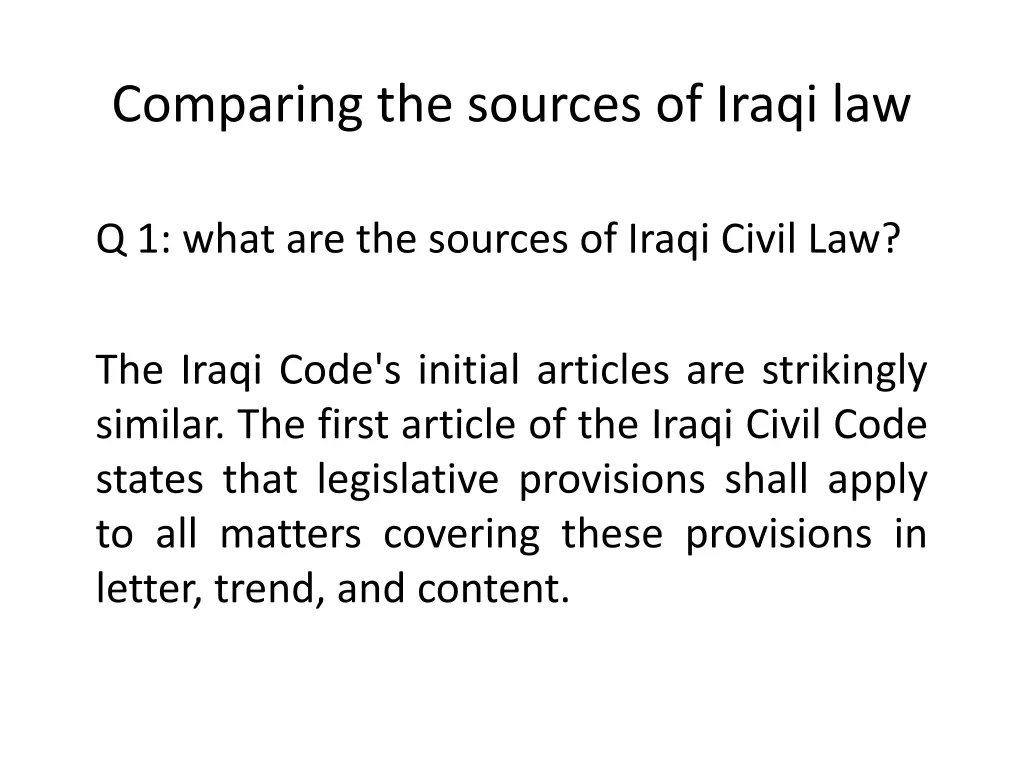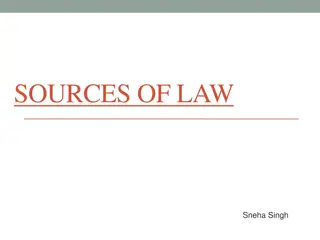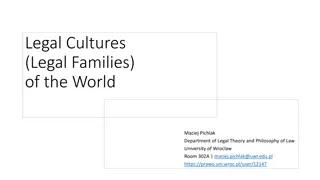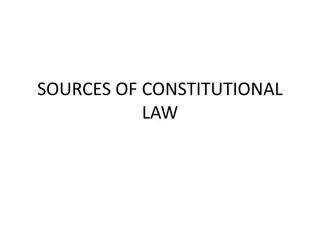
Sources of Iraqi Civil Law Analysis
Explore the sources of Iraqi Civil Law, including legislative provisions, custom, Islamic Shari'a principles, and laws of equity. The Iraqi Civil Code dictates the hierarchy of sources and limits independent religious judgment in legal matters.
Download Presentation

Please find below an Image/Link to download the presentation.
The content on the website is provided AS IS for your information and personal use only. It may not be sold, licensed, or shared on other websites without obtaining consent from the author. If you encounter any issues during the download, it is possible that the publisher has removed the file from their server.
You are allowed to download the files provided on this website for personal or commercial use, subject to the condition that they are used lawfully. All files are the property of their respective owners.
The content on the website is provided AS IS for your information and personal use only. It may not be sold, licensed, or shared on other websites without obtaining consent from the author.
E N D
Presentation Transcript
Comparing the sources of Iraqi law Q 1: what are the sources of Iraqi Civil Law? The Iraqi Code's initial articles are strikingly similar. The first article of the Iraqi Civil Code states that legislative provisions shall apply to all matters covering these provisions in letter, trend, and content.
Comparing the sources of Iraqi law In the absence of any applicable legislative provisions in the law, the court shall adjudicate according to custom and usage. In the absence of custom and usage, courts shall rule in accordance with the principles of the Islamic Shari'a which are most consistent with the provisions of the Iraqi Civil Code, though courts are not bound by any specific school of thought. Otherwise, the Iraqi Code states that courts are to rule in accordance with the laws of equity.
Comparing the sources of Iraqi law The principal distinction of the two codes, insofar as their hierarchy of sources is concerned, is the Iraqi Code's concession to religious influence-allowing absence of legislation, custom, or usage, courts shall rule in accordance with the principles of the consistent with the provisions of the Iraqi Civil Code. that, in the Islamic Shari'a most
Comparing the sources of Iraqi law However, that kind of religious judgment is curtailed by Article 2 of the Iraqi Code, which states that "[w]here there is a provision no independent judgment (ijtihad) is permissible." According to the explanation of this article in the Iraqi Code: "[tihe meaning of this article is that it is not permissible to make an independent judgment in respect of a Shari' a case in respect of which there is a provision (rule) because the making of an independent judgment will be where there is no provision ....






















